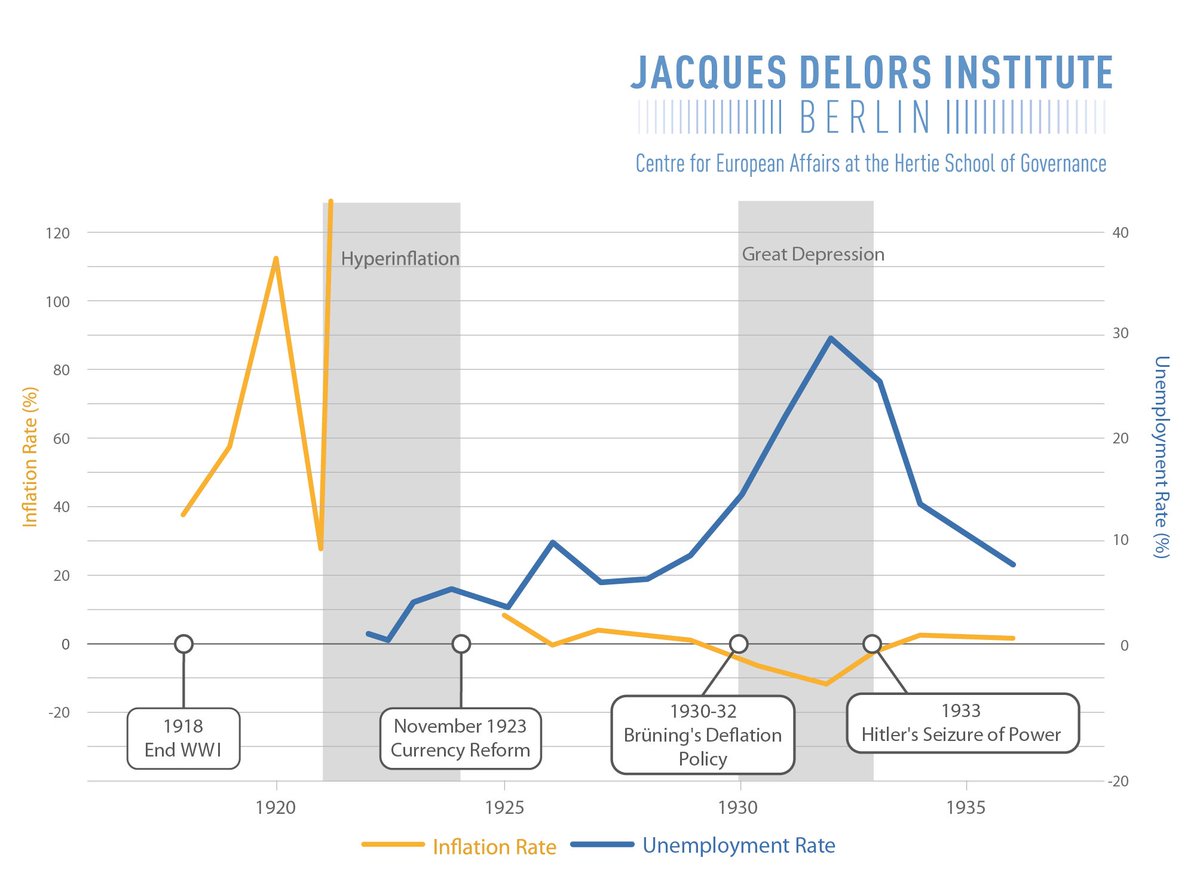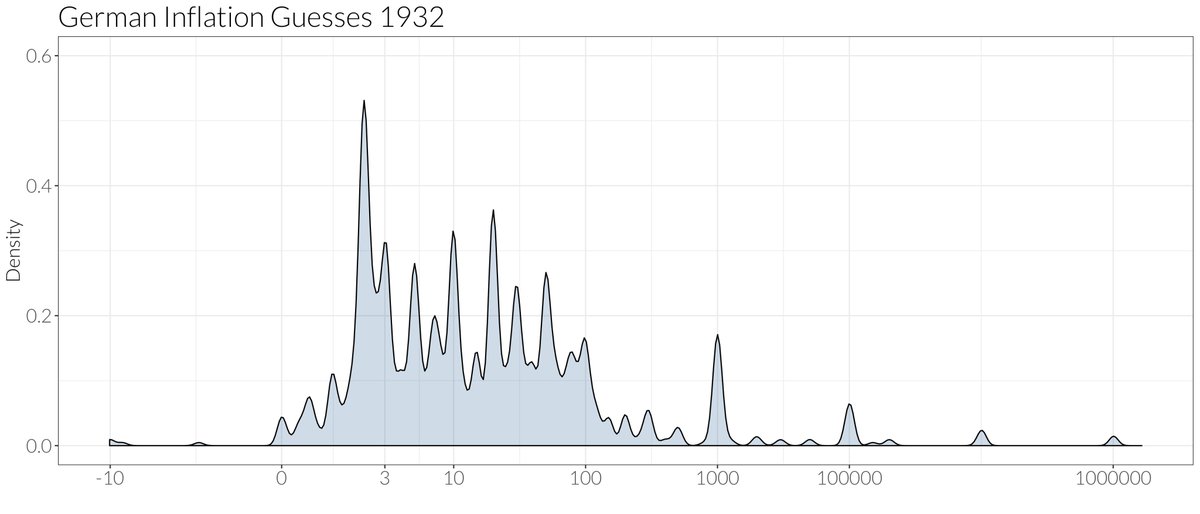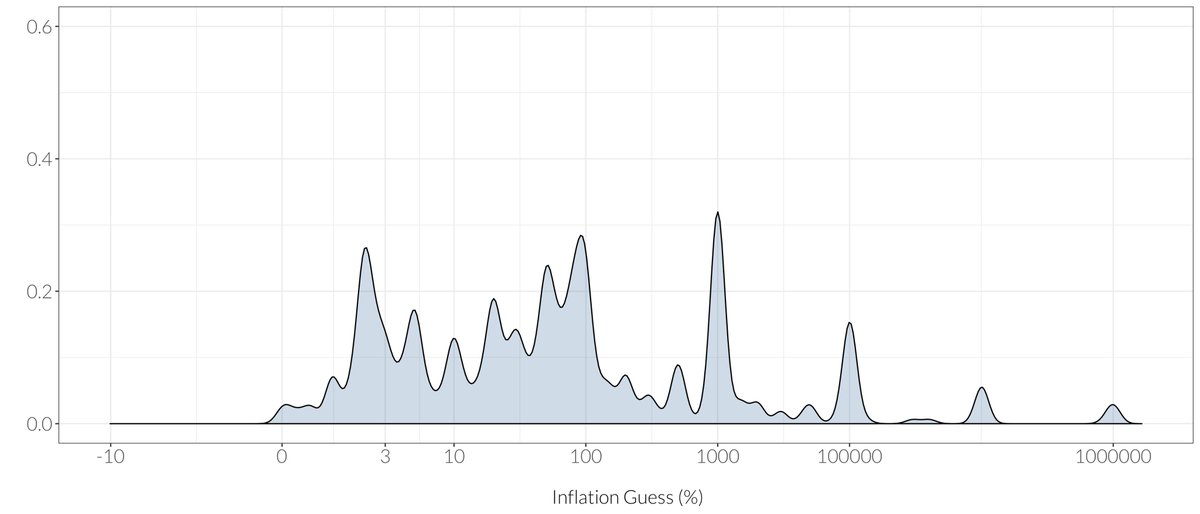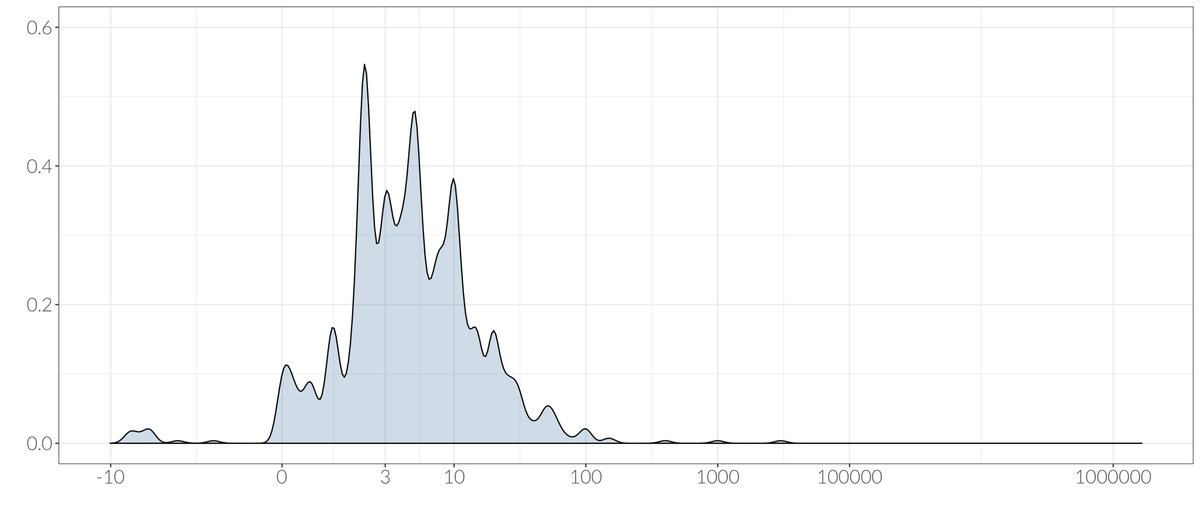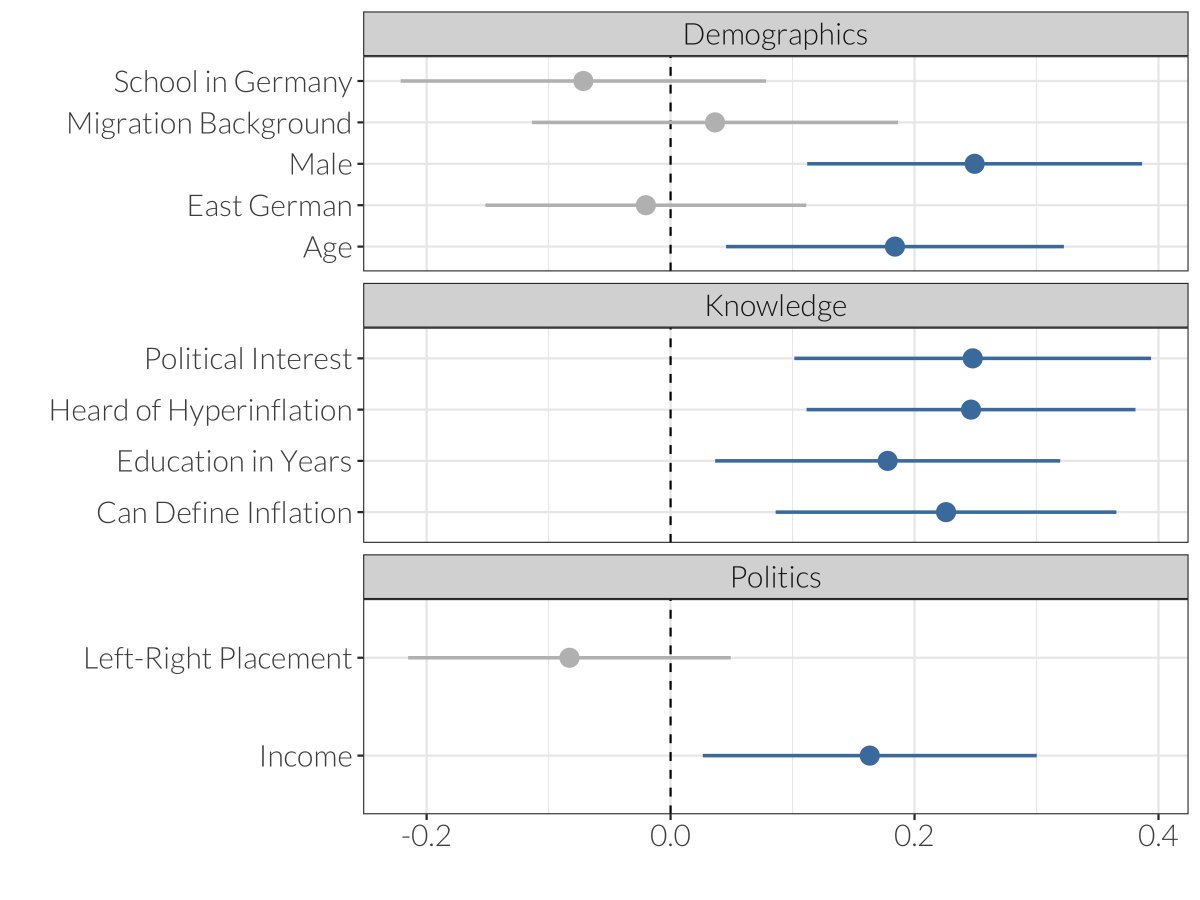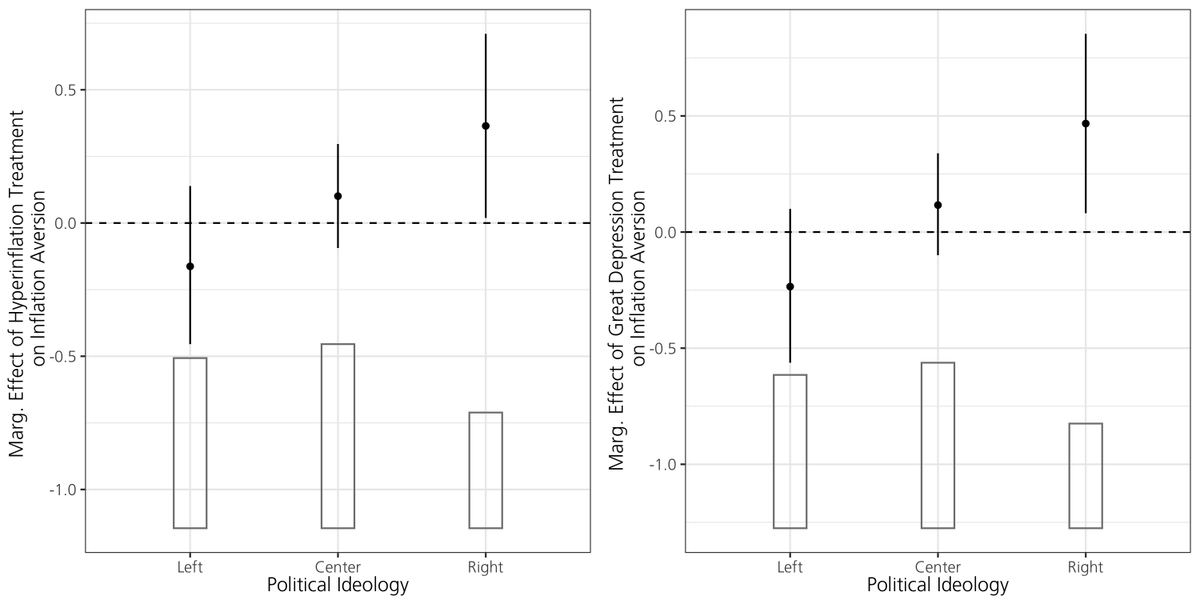Today @Lagarde takes over at the ECB. Amongst her challenges: dealing with a German public deeply sceptical of ECB policies. In a new paper @LHaffert, @tobirommel and I study the historic roots of this scepticism. Spoiler: it& #39;s a misunderstanding. https://tinyurl.com/y5zex367 ">https://tinyurl.com/y5zex367&... (1/n)
To explain German skepticism, commentators often point to the collective memory of the #Hyperinflation in the early 1920s. But why is this still such a strong reference point? We find that many Germans merge it with the Great Depression u2013 a totally different crisis (2/n)
A majority thinks that the hyperinflation and the Great Depression were one and the same crisis. Reminding them of hyperinflation thus triggers images of mass unemployment u2013 and vice versa. (3/n)
We asked a representative sample of Germans to tell us up to three specific economic problems from which the German economy suffered during the Great Depression. While the most frequent answer was unemployment, more than 40% mentioned inflation (and less than 4% deflation). (4/n)
We find a very similar pattern when we ask people to explicitly estimate the inflation rate in 1932, at the peak of the Great Depression. More than half of our respondents stated that the inflation rate was larger than 10% and 15% guessed that it was even 100% or higher. (5/n)
How do we know that they really confuse the two events? Does this really look like a distribution of actual hyperinflation guesses? To find out, we explicitly asked a subgroup to estimate inflation rates during hyperinflation. The responses look remarkably similar. (6/n)
Moreover, this confusion appears to be unique to Germany. We replicated our survey in the Netherlands and did not find similar effects. The Dutch also donu2019t know that the 1930s were a period of deflation. However, they also donu2019t think it was a period of very high inflation.(7/n)
Who is most likely to commit this fallacy? Perhaps surprisingly, it is more educated and more politically interested Germans. We think there is a simple explanation: to conflate two historical events, you need to be aware of them in the first place. (7/n)
Does making people think about Weimar change their economic preferences? Not for everyone! Only people who self-describe as being on the political right become significantly more inflation averse compared to the control group. (8/n)
Can we move preferences by explaining the actual history? Not really. Only leftists become slightly less inflation averse when learning about deflation. Weimar references thus seem to have polarizing effects: People only react to those primes that fit their political priors (9/n)
Here is a longer, working paper version of the Delors study: https://tobirommel.com/research/hyperinflation/">https://tobirommel.com/research/... (10/n)
And here is a write-up of Mark Schieritz for @zeitonline https://www.zeit.de/wirtschaft/2019-10/konjunktur-geschichte-inflation-ezb-angst">https://www.zeit.de/wirtschaf... (end)

 Read on Twitter
Read on Twitter